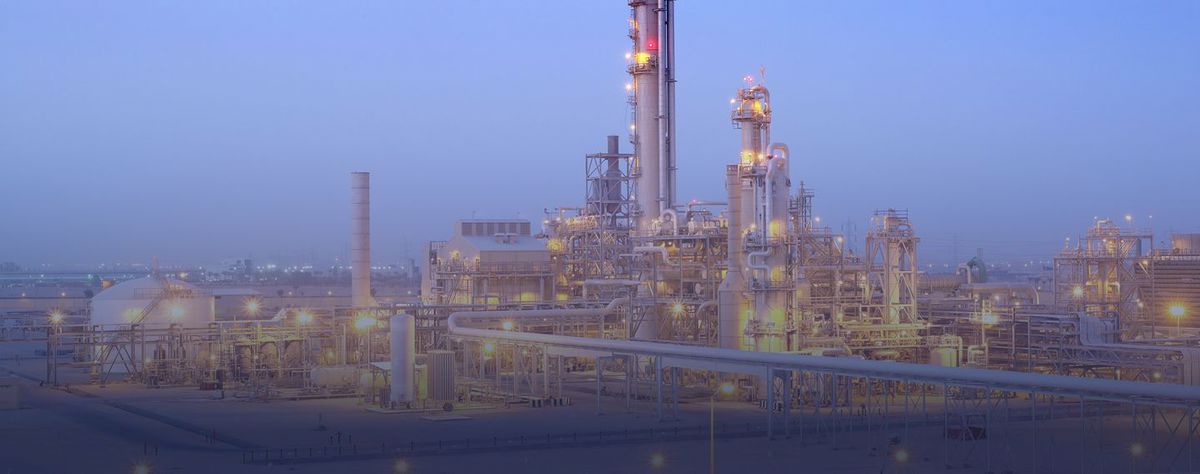INTERVIEW: Mass-balancing will be crucial to achieve IMO-guided targets – OCI Methanol CEO
From a conceptual standpoint, it will not be feasible to meet the IMO’s suggested decarbonisation targets without mass balance, OCI Methanol’s chief executive Bashir Lebada told ENGINE in an exclusive interview.
 PHOTO: OCI Beaumont is an integrated methanol and ammonia production facility located near Beaumont, Texas in the US. OCI Global
PHOTO: OCI Beaumont is an integrated methanol and ammonia production facility located near Beaumont, Texas in the US. OCI Global
The IMO recently proposed interim targets of reducing greenhouse gas (GHG) emissions by 20% by 2030 (striving for 30%) and 70% by 2040 (striving for 80%) with the goal of eliminating them by (or around) 2050.
Bashir Lebada, the chief executive of OCI Methanol, which supplies low carbon fuel through its HyFuels brand for OCI Global, told ENGINE that the mass balancing method is important for increasing green methanol bunker fuel availability, and by extension, helping shipping meet the IMO’s 2030 interim target with green methanol in its fuel mix.
“I mean, you cannot depend on greenfield production [with one renewable feedstock] to enable this transition quickly. And so, being able to leverage brownfield facilities that have proven operators that know what they are doing and introducing green feedstock streams in the right way alongside historical fossil streams is the way to go,” he told ENGINE. And using existing facilities would also help to "mitigate the incremental costs of the energy transition" compared to greenfield projects, he noted.
“The mass balance approach accelerates the energy transition because it allows companies like OCI to produce renewable and low carbon products at existing facilities, alongside traditionally produced products, meaning we don’t delay the production and use of green products by having to wait for new facilities to be built,” Lebada said.
Mass-balancing at OCI HyFuels
OCI HyFuels produces biogas from bio-cellular waste, residues and byproducts. This biogas is then converted into bio-methane. In the mass balance approach, this bio-methane is injected into the grid but not segregated from the natural gas in the system, nor are the bio-methanol molecules segregated from the grey methanol during storage and transportation, according to the company.
Lebada confirmed that the bio-methanol OCI produces is accounted for on a mass-balance basis, which he said can have 65-90% lower absolute GHG emissions than fossil fuels, depending on the application and other lifecycle factors. A remaining question, however, is how it calculates the GHG intensity of bio-methanol and bio-methane blended with natural gas.
“All bio-methane and bio-methanol molecules are traceable in the supply chain,” Lebada pointed out, “the accounting is done extremely accurately. All the certification is done accurately. Our plants are audited regularly.”
OCI Hyfuels’ bio-methanol is certified by the International Sustainability and Carbon Certification (ISSC) and compliant with the EU’s RED II regulation. And there are strict rules regarding “what you can and can't do” from a mass-balance standpoint, he explained.
“And so, from our perspective, mass balance is the only logical way we can really meet the transition. It’s necessary to meet the [shipping industry’s] transition. And if the dependence is all on green methanol or [any] sort of greenfield projects, then it’s going to take a lot longer,” he added.
Mass-balance ≠ book-and-claim
Fuels and feedstocks are physically moved in a mass-balance system - unlike in a book-and-claim system, Lebada said.
“[In a mass-balance system] I can't say I have some renewable feedstock in Texas, and I can have production in the Netherlands. So, I'm just going to, on paper, transfer this from Texas to the Netherlands. Everything moves from [the bio-methane gas pipeline] to the plant, onto the vessel, [and] from the vessel to the other tank. I mean, it's all a physical chain of custody on everything from the feedstock to the demand,” he continued.
On the other hand, book-and-claim is a type of supply chain model that will allow shipowners to purchase emissions reductions from other shipowners that have already invested in low- and zero-emission fuels. By doing so, they will be able to balance out the emissions from their ships.
It is currently in practice in the sustainable aviation fuel (SAF) industry. SAF suppliers, including BP and SkyNRG, provide customers with book-and-claim benefits. Some shipping companies and industry alliances like the Global Maritime Forum are advocating for a book-and-claim system to foster zero-emission shipping.
“The mass balancing approach is accepted under the EU RED programs and is considered a key GHG accounting methodology helping to factor in the climate properties of renewable products,” Lebada said.
A greener road ahead?
OCI HyFuels currently produces 200,000 mt/year of bio-methanol on a mass-balance basis. Most of it is currently earmarked for the road fuels market, but OCI it plans to scale up its production capacity in the US and Europe to meet growing demand from the shipping sector.
In the short-term, however, “the goal isn’t necessarily to build new capacity, but rather to decarbonise our existing asset base by injecting greener feedstocks,” Lebada added.
OCI HyFuels plans to go beyond mass-balancing in the long run.
“In the medium-term, we are actively working to secure significant quantities of green hydrogen. For the longer term, we are also evaluating gasification projects at our facilities to provide green syngas to produce green methanol,” he concluded.
By Konica Bhatt
Please get in touch with comments or additional info to news@engine.online






